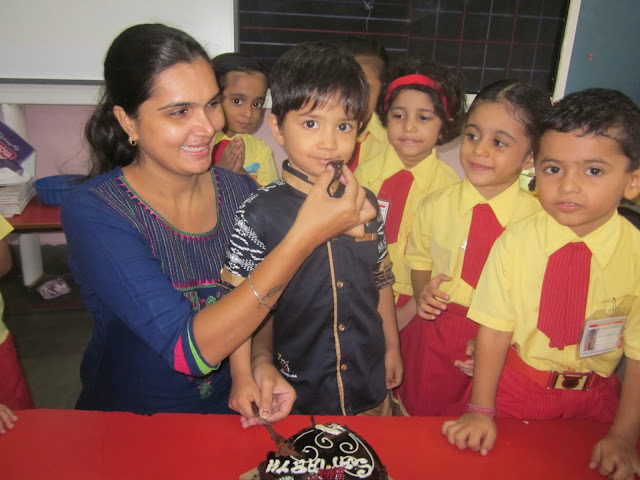Workshop on Importance on Parent Child Communication.
Dear Parents,
Talent Hub has Organized a parents workshop on Saturday,
30th July 2016.
We have a renowned doctor with us, who will enlighten the
parents on the following topics like:-
·
Lying: Why Children lie and how to
handle.
·
Punishment v/s Positive
reinforcement.
·
Importance of Parent-Child
Communication, etc.
Attending the workshop will surely
help our parents to settle their Queries.
Children might lie to:
·
cover something up so
they don’t get into trouble
·
see how you’ll respond
when you hear them lie
·
make their story
more exciting or make themselves sound better
·
get attention, even when
they know you know the truth
·
get something they
want – for example, saying to grandma, ‘Mum lets me have lollies before
dinner’.
Children can learn to tell lies from an early
age, usually by around three years of age.
This is when your child starts to realise that you aren’t a mind
reader, so he can say things that aren’t true without you always knowing.
Children lie more at 4-6 years. Your child might get better at telling lies by
matching her facial expressions and the tone of her voice to what she’s saying.
If you ask her to explain what she’s saying, she’ll usually own up.
When children reach school-age, they might lie more often and can be better at lying. The
lies also get more complicated, because your child has more words and is better
at understanding how other people think.
By eight years, children can lie successfully
without getting caught out.
Once children grow old enough to understand
the difference between true and not true, it’s good to encourage and support
them in telling the truth.
You can do this by emphasizing the
importance of honesty in your family and praising your child for honesty – even if it sometimes takes
you a while to get it.
You can also send messages about honesty by
telling your child that you don’t like it when he lies to you. For example, you
could try saying something like, ‘When you don’t tell me the truth, I feel sad
and disappointed’.
Dear Parents, Remember this :- Children
do as you do.
Your child watches you to get clues on how to behave in the world. You’re her role model, so use your own behaviour to guide her. What you do is often much more important than what you say. If you want your child to say ‘please’, say it yourself. If you don’t want your child to raise her voice, speak quietly and gently yourself.
Your child watches you to get clues on how to behave in the world. You’re her role model, so use your own behaviour to guide her. What you do is often much more important than what you say. If you want your child to say ‘please’, say it yourself. If you don’t want your child to raise her voice, speak quietly and gently yourself.
Get down to your child’s level. Kneeling or squatting down next to children is a very
powerful tool for communicating positively with them. Getting close allows you
to tune in to what they might be feeling or thinking. It also helps them focus
on what you are saying or asking for. If you are close to your child and have
his attention, there is no need to make him look at you.
Maintain a sense of
humour. Another way of diffusing tension and possible conflict is to use humour
and fun. You can pretend to become the menacing tickle monster or make animal
noises. But humour at your child’s expense won't help. Young children are
easily hurt by parental ‘teasing’. Humour that has you both laughing is great.
With punishment, always remember that the
end result is to try to decrease the undesired behavior. Positive punishment
involves adding a negative consequence after an undesired behavior is emitted
to decrease future responses. Negative punishment includes taking away a certain
desired item after the undesired behavior happens in order to decrease future
responses.






Comments
Post a Comment